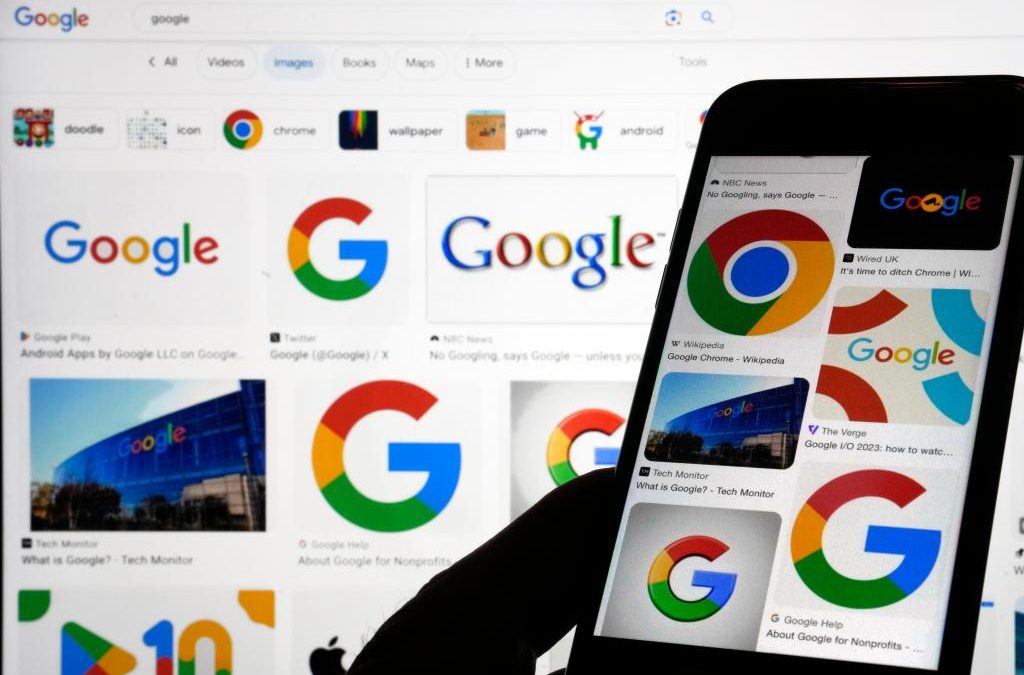“Fortnite” maker Epic Games accused Google of using a two-pronged “bribe and block” scheme to stifle competition to its Play Store at the start of a federal antitrust trial – adding another headache for the tech giant that’s facing a landmark battle over its alleged monopoly over search.
Epic attorney Gary Bornstein claimed that Google makes payments to competitors to prevent the creation of any alternative app stores during opening arguments in San Francisco on Monday.
At the same time, Google allegedly blocks potential rivals from offering their own payment systems and makes it difficult for them to offer apps through other outlets, even as it takes up to a 30% cut of in-app purchases made through its Play store, Bornstein argued.
“The result of what Google is doing is higher prices, lower quality, and less choice for everybody,” Bornstein told the 10-person jury.
The case is the latest sign of mounting legal scrutiny over Google’s business practices. The Justice Department’s once-in-a-generation effort to break up Google’s search empire is well underway in Washington, DC.
The Big Tech giant also faces separate federal antitrust probes over its digital advertising dominance and its Maps business.
Bornstein highlighted the dominance of Google’s Play Store, which purportedly accounts for more than 90% of all Android software apps downloaded in the US. The Play Store generates more than $12 billion in operating profit.
Google’s legal team fired back during its opening argument, pointing to the existence of Apple’s App Store. Additionally, some major apps, such as OpenAI’s ChatGPT, debuted exclusively on the App Store.
“Because Google faces strong competition from Apple and others, it cannot be and is not a monopolist,” Google attorney Glenn Pomerantz said.
The dispute between Google and Epic Games came to a head in 2020. At the time, the “Fortnite” maker enabled a feature allowing customers to pay the company directly rather than through app store payment systems required by Google and Apple.
Both tech giants responded by banning “Fortnite” from their app stores, prompting a legal challenge by Epic. A separate trial between Epic and Apple resulted in a split verdict in 2021 that largely favored Apple, though both firms have pushed the Supreme Court to take up the case.
A 10-person jury will decide who wins the Google v. Epic trial. That’s a major difference from the Justice Department’s case targeting Google’s search empire, which will be decided by one person – Judge Amit Mehta.
The trial has some prominent names on its witness list, with Google CEO Sundar Pichai and CFO Ruth Porat, and Epic Games CEO Tim Sweeney among those who are set to testify. The trial is expected to last for approximately four weeks.
Epic pressed forward with its legal challenge after Google parent Alphabet reached a settlement last week with another plaintiff, Match Group. Google also settled with a group of state attorneys general who had joined the suit.
After the Match settlement was announced, Sweeney tweeted that “Epic will go to trial against Google alone.”
Epic is seeking a court order requiring to discontinue anticompetitive practices within its app store.
In a blog post released on the eve of the trial, Wilson White, Google’s vice president of government affairs and public policy, described Epic’s claims about alleged anti-competitive practices as “baseless.”
“The truth is that Epic simply wants all the benefits that Android and Google Play provide without having to pay for them,” White said.
With Post wires
Source




